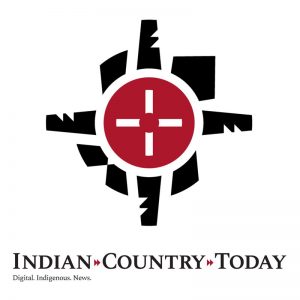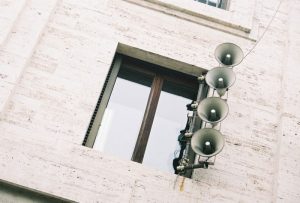
May 2, 2016; Philadelphia Inquirer
During the year since it’s opened, the Lenfest Institute for Journalism has been making headlines regularly and drawing new attention to a field that has been having a hard time finding its footing. In February, NPQ covered Lenfest’s joint announcement with the Knight Foundation of a new initiative to support local newsrooms. Earlier this week, the nonprofit announced that it had secured new financial commitments of $26.5 million from a “broad base of national and regional funders” and will soon be kicking off a matching gift campaign. At a time when local journalism is struggling in light of falling advertising and new challenges from online entities, Lenfest’s success at bringing new interest to the possibilities of local news is a valuable case study for the journalism field and nonprofits more broadly.
Cable television entrepreneur and philanthropist H.F. “Gerry” Lenfest established the Lenfest Institute with an initial endowment gift of $20 million to support local journalism. (As clarification of this mission, Jim Friedlich, executive director and CEO of the Lenfest Institute, explained to NiemanLab, “National media—like the New York Times and the Wall Street Journal—have a visible path to digital transition, but the Philadelphia Inquirers, the Miami Heralds and Detroit Free Presses of the world, have a long way to go.”) As part of this gift, Lenfest also transferred his ownership of the Philadelphia Media Network, which includes the Inquirer, the Philadelphia Daily News, and Philly.com, to the Institute.
The endowment gifts Lenfest announced this week represent a range of levels and donors: $15 million from an anonymous donor; $2 million from the Wyncote Foundation; $3 million from David Haas, a board member of the William Penn Foundation; and a total of $6.5 million from a range of donors along with the Knight Foundation, the Kopelman Foundation, and Independence Blue Cross. In light of the organization’s fundraising success, Mr. Lenfest has pledged an additional $40 million to launch a matching gift campaign. The Columbia Journalism Review heralded these gifts as “a great day for local journalism.”
Sign up for our free newsletters
Subscribe to NPQ's newsletters to have our top stories delivered directly to your inbox.
By signing up, you agree to our privacy policy and terms of use, and to receive messages from NPQ and our partners.
Jim Friedlich, executive director and CEO of Lenfest, offered some additional insight on the organization’s guiding strategy and rapid growth. He explained that Mr. Lenfest and the Lenfest Institute’s staff began cultivating potential donors—including their anonymous donor—from the organization’s founding. Because financial gifts are particularly sensitive issues for media entities, however, he pointed out that from the start the organization established a clear gift acceptance policy that specifies that “donations that might jeopardize the editorial independence of the Philadelphia Media Network or any other media organization with which the organization works” will not be accepted. The policy also states that donations must be for a “public purpose and advance the mission and strategic objectives of the institute.”
Giving credibility to the phrase “timing is everything,” Friedlich pointed to three underlying reasons for the organization’s rapid growth:
- There is a groundswell of concern about the veracity of news, the need to protect independent news organizations and the long-term health of the Fourth Estate in our democracy. (Friedlich specified that Lenfest is nonpartisan and that this concern is felt “across the political spectrum.”)
- The pressure on good journalism is felt most acutely at the local level in markets whose news enterprises are increasingly challenged.
- There is a growing realization that practical, tangible business solutions are required to address these issues.
He added that all the organization’s donors, which include venture capitalists, media executives, local and national foundations, and civic leaders, all share a desire to “solve this problem and a belief that our roll-up-our-sleeves, down-to-earth business approach is a promising way to do so.”
Later this month, Lenfest plans to announce a grant program and a fellowship program that are designed to enhance each other. According to NiemanLab, the Institute also has some research projects in the works, including one study that will look at media consumption habits in Philadelphia and another that will examine the propensity of readers to subscribe to digital newspapers. With these ambitious goals, it will be interesting to follow the impact on local media sites throughout the country and on the Lenfest Institute more directly.—Anne Eigeman













